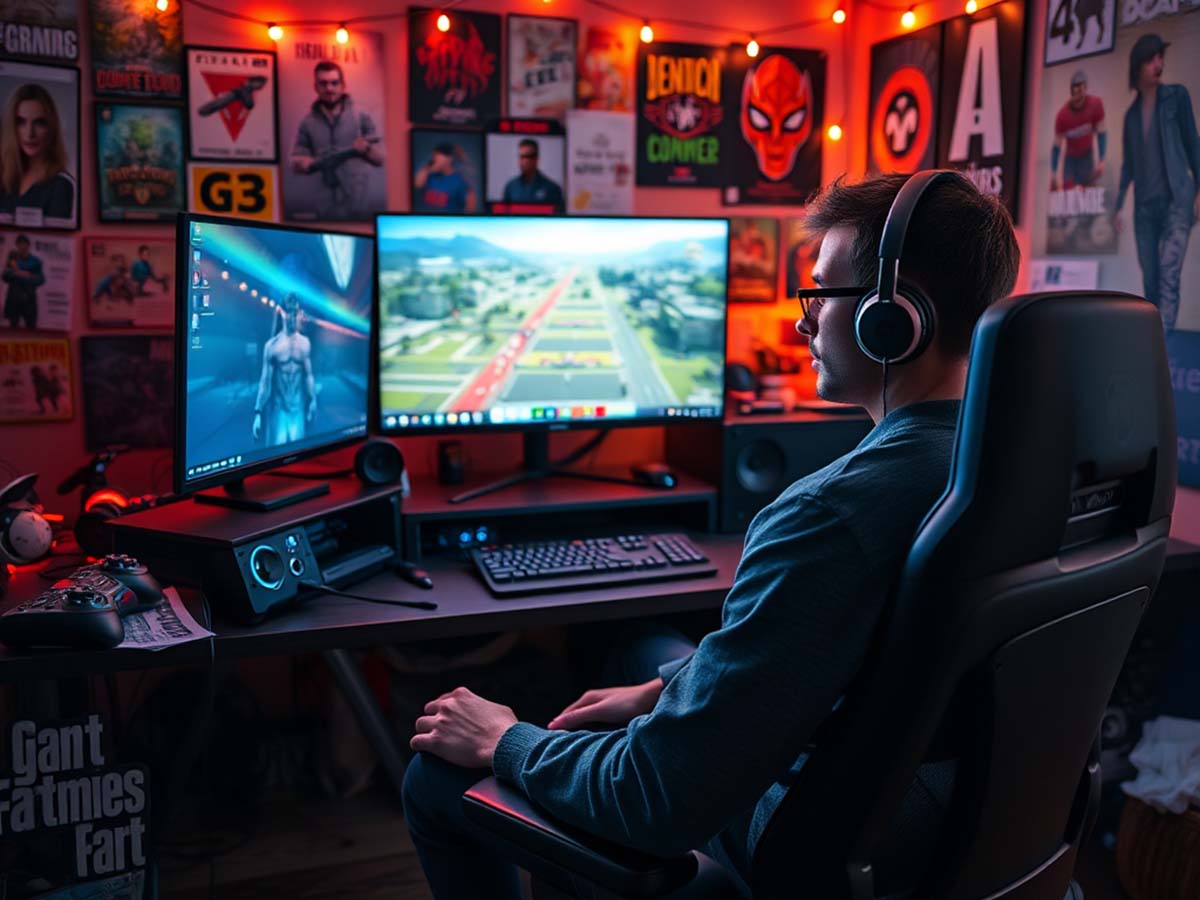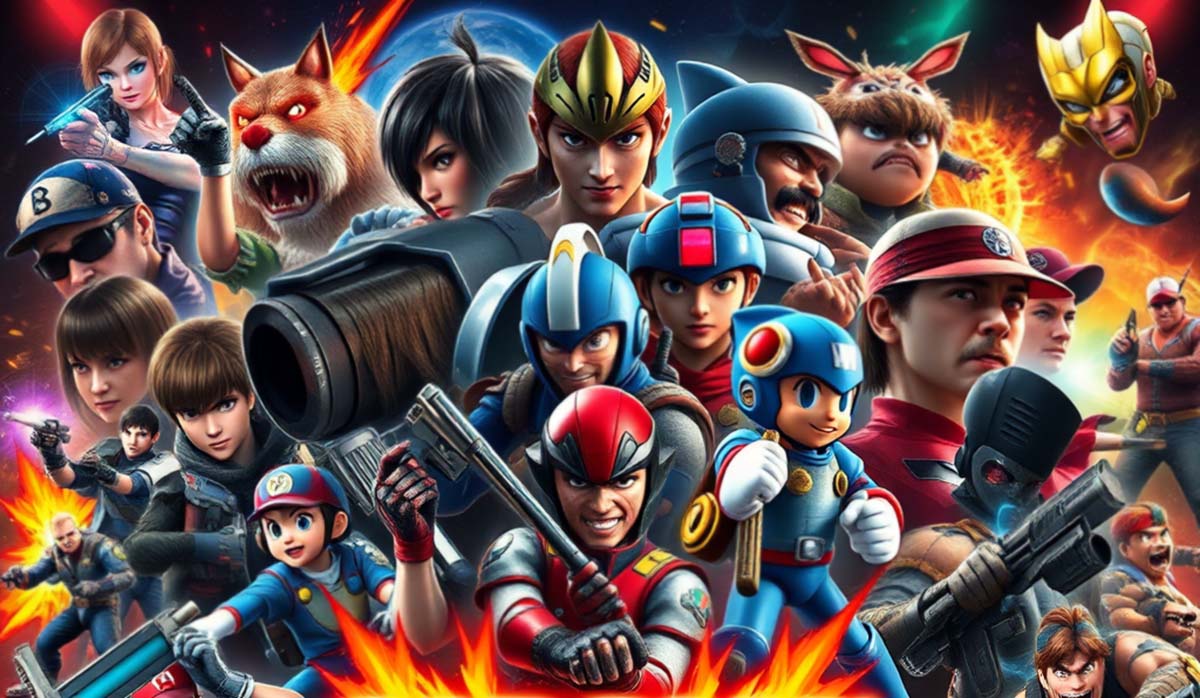Why Time Management Matters
Gamers often juggle work, school, or family commitments. Yet they still want to enjoy favorite titles or compete in tournaments. This can cause frustration if daily schedules feel chaotic. Good time management helps maintain balance and lowers stress levels. It sets clear boundaries so gaming can fit neatly into busy days.
Many people think of gaming as just a hobby. Yet it requires steady practice, strategic thinking, and focus. These elements mirror tasks in everyday life. Proper scheduling makes it easier to reach in-game goals without sacrificing personal responsibilities. This approach also prevents burnout, allowing players to keep a fresh mind for longer play sessions.
Managing time well helps new gamers train quicker. It guides them to set aside regular slots for practice, study, or watching skilled players. Even short, targeted sessions can offer major learning value. Over time, this consistent routine builds confidence and leads to steady improvement.
Better Focus and Efficiency
Solid planning lets gamers make the most of each minute. When a schedule sets aside a block for gaming, there is no rush or guilt. That peace of mind leads to sharper focus once the match begins. Players give full attention to their moves, tactics, or aim, rather than glancing at the clock.
By mapping out daily duties, gamers avoid last-minute stress. An example might be finishing homework or cleaning up before turning on the console. This frees the mind from nagging tasks and aligns with the philosophy of time management for gamers, ensuring that every minute feels purposeful.
Some gamers break longer sessions into smaller chunks—for instance, 30 minutes of solo training, then a short break, then 30 minutes of online competition. This rhythm keeps energy high and helps the brain process new skills. A well-managed approach prevents physical and mental fatigue.
Less Stress, More Fun
Poor planning can create tension when life obligations bump against gaming desires. By adopting a detailed schedule, players reduce those worries. Time slots are designated for daily tasks, chores, or social events. Gaming then becomes an earned break instead of a sneaky distraction.
Stress reduction plays a big role in improving performance. Gaming with a clear mind leads to quicker reactions and sound decision-making. Mistakes happen when the player’s mind is pulled in many directions. A set schedule cuts down on those mental distractions, leading to better results on screen.
A sense of fun also rises when there is no guilt about neglected responsibilities. Gamers can relax during intense raids or matches. They know real-world needs have already been addressed. This mental clarity can be the difference between average performance and shining moments.
Building Discipline for Competitive Play
Many dream of joining esports or local competitions. Time management lays the groundwork for these goals. Professional players follow strict routines, practicing daily and analyzing replays. While the casual gamer might not match a pro schedule, they can still learn from disciplined habits.
Discipline does more than improve raw skills. It fosters mental resilience. Structured training sessions build a habit of continuous growth. When gamers see tangible improvements, they feel motivated to practice more. This momentum pushes them to train even harder in areas that still need work.
Scheduled practice also encourages data-driven reflection. Players can note how many hours go to specific skills or heroes. Then they can adjust their routines based on actual results. This makes each minute spent training more meaningful.
Even outside of pro-level gaming, personal discipline can spark healthy competition among friends. A group might set certain times to play together. Each member commits to a schedule so everyone gets consistent practice. Friendly rivalry can emerge, driving each player to sharpen their techniques.
Practical Scheduling Tips
A neat plan does not require fancy apps. A pen-and-paper approach can work well. What matters is honesty when dividing time among tasks. Below are some suggestions to keep life in balance:
Set Realistic Goals
Aim for achievable practice blocks. Perhaps one hour per evening for skill work, or two hours on weekends. Overly big goals often collapse under daily pressures.
Use Timers
Many gamers find it helpful to set timers for focused play. A timer can ring after a set period, signaling a short break. This prevents endless sessions that can cause fatigue.
Schedule Breaks
Short rests help the mind recharge. This is useful for reaction-based games. After a few rounds, take five minutes to stretch, sip water, or rest your eyes. Returning with fresh energy can boost accuracy and decision-making.
Track Progress
Keep a small notebook or digital log. Jot down wins, losses, and what you learned each day. Look for patterns to see if certain times of day are more productive. Adjust your schedule based on these insights.
Balance Work and Leisure
Avoid letting gaming absorb all free hours. Fit in other hobbies or exercise. The mind stays sharper when it has variety. This prevents burnout and keeps gaming sessions energizing.
Common Mistakes and How to Fix Them
Even with the best intentions, schedules can break down. Here are some pitfalls people face:
Overcommitment
Sometimes a gamer tries to cram every goal into one day. That can lead to exhaustion. The fix is to choose two or three priorities at most. Focus on completing them well.
Ignoring Breaks
A strong sense of motivation might keep a person glued to the screen. This can hurt performance in the long run. The fix is to respect planned pauses. A short rest helps the brain process new data.
Setting Vague Goals
“Get better at the game” is too broad. Targets work best when they are specific. For example, “Practice combos for 20 minutes, then review one replay” is easier to follow.
Skipping Daily Life Tasks
Some gamers might push aside school or chores to grind levels. This leads to tension and bigger problems down the road. The fix is to schedule real-life tasks first. Then gaming feels more rewarding and guilt-free.
Stories from the Community
Many gamers have improved thanks to time management. A friend once struggled with balancing high school assignments and online matches. They decided to create a simple plan: finish homework before touching the console. This small change removed a major source of stress. After a few weeks, they noticed stronger focus during competitive matches. Their rank began to climb.
Another player aimed to go pro in a popular shooter. They mapped out a daily routine that included aim drills, team strategies, and replay analysis. While they worked a part-time job, they still found two hours each evening for practice. Over several months, they developed sharper reflexes and game sense. Their climb to higher leagues drew attention from local tournament organizers.
Yet another individual was a casual gamer with a busy family life. They often felt guilty about wanting to play. By designating a gaming hour each night, they freed themselves from that inner conflict. Their loved ones knew the schedule and supported it. Gaming became more satisfying because it was planned and agreed upon.
These examples show real ways time management supports a gamer’s growth. Each story highlights small decisions that led to progress. The common thread is organization. Even a modest plan can do wonders for mental clarity.
Growing Confidence and Better Skills
With a structured schedule, players gain a sense of progress. That builds confidence. When a person sees that consistent study or practice yields positive results, they become eager to continue. This enthusiasm usually leads to experimentation with new tactics or character builds.
Confidence also reduces fear of mistakes. Gamers who plan practice blocks understand that failures are part of the learning curve. They are less likely to quit when setbacks happen. They return with a fresh mindset, knowing they have time dedicated to improvement.
Better time management influences mental alertness, too. Players can note when they feel most energetic. Some prefer morning sessions. Others do better in the evening. Matching gaming hours to personal peak times often produces more wins and growth.
Feedback loops become clearer as well. A gamer can look back on each session, track what happened, and note how they felt. If they missed many shots due to fatigue, they might shift the next session to an earlier slot. This level of self-awareness is easier when there is a written or digital plan.
Why This Approach Works Long-Term
Short bursts of random practice rarely build lasting skills. A planned routine sets the stage for improvement by offering consistent repetition. Over the long term, even modest daily sessions add up to hundreds of hours. That can transform how a player performs.
Time management encourages accountability. It fosters a sense of ownership. If a session goes poorly, the player can investigate why. Maybe they felt rushed because they left chores undone. Next time, they plan chores first. The cycle of reflection and adjustment drives steady results.
This method also lowers the risk of gaming addiction. By placing gaming within a structured environment, players protect personal wellness. They allocate time for meals, friends, or other hobbies. This keeps life balanced. When life feels balanced, gaming remains a hobby that sparks joy rather than a source of conflict.
Over the years, many coaches and mentors in the esports world have advised players to keep strict routines. This is not only for mental readiness but also to maintain physical health. Gamers who manage time carefully often include exercise and healthy meals in their schedule. That combination enhances stamina during long gaming sessions.
A Warm Thought to End On
Time management is not about strict rules or limiting fun. It is about creating a steady rhythm for all parts of life, gaming included. When practiced with patience, it leads to a happier mind and sharper gaming skills. Small steps can unlock major improvements over time.



